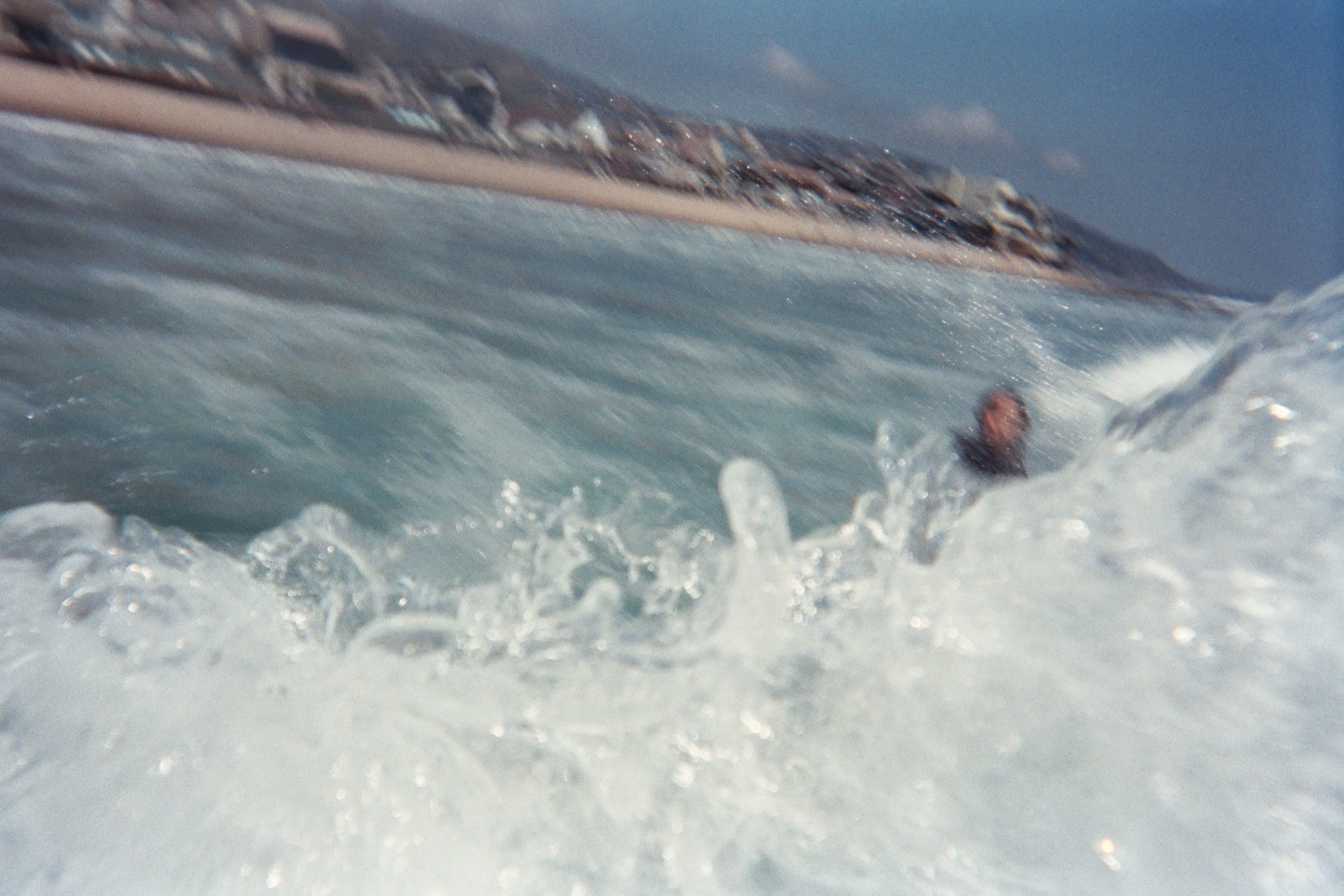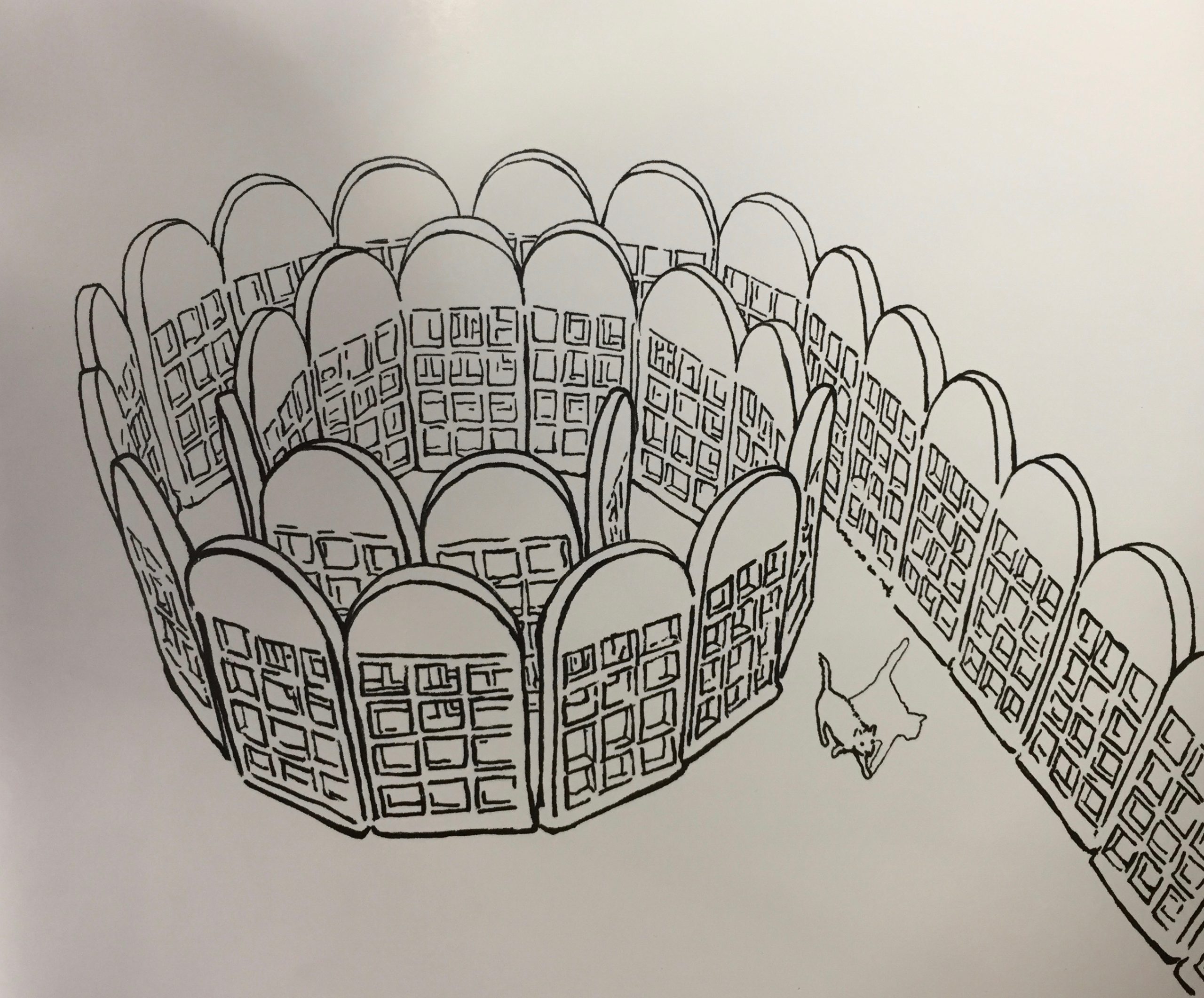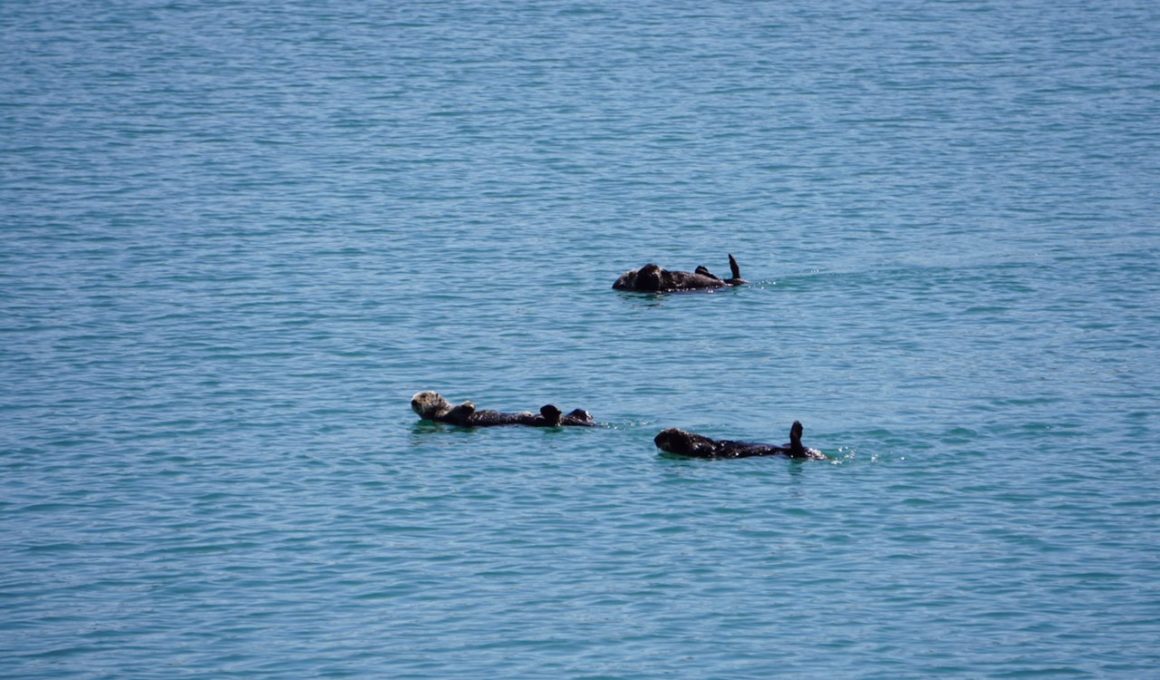I. Good Friday
During Fifth Grade, I was assigned the first research report I can remember. The assignment: write a report on an animal.
I can’t remember how I selected my animal. Mr. Hisashima may have suggested otters, a parent may have, or I may have conjured the notion on my own. I checked out library books with help from Haiku school’s Mr. Blair. I perused National Geographic issues for pictures of otters playing, wrestling, and gliding down muddy slides into rivers. I learned about sea otters breaking mollusks over rocks, a rare instance of animals using tools.
I cut out pictures. I pasted pictures onto printer paper with glue sticks. Those were analog days of handwritten reports. I wrote a dope report. Written, collaged, and paginated, I affixed plastic sheets to the front and back using a yellow piece of spine-plastic to bind.
The report was so legit that it changed my life. Since writing that report, when folks ask: “what’s your favorite animal?” I respond: “sea otters.”
II. Interred in the Cave
On Sunday, April 4th, 2021, I told a group of people at an Easter hang that my favorite animal is the sea otter.
Like a bunny birthing baby chickens, one of the listeners plopped a yellow, marshmallow Peep of sea otter trivia into the Easter basket of my brain: “You know, male sea otters bite and scratch females during mating, and sometimes they ransome baby otters in exchange for the female’s food.”
Egged on by this comment, another listener twisted the freaky, fluffy, granulated dagger, saying: “Not only that, male sea otters have been known to rape baby seals to death and continue raping the corpses for up to a week.” These comments, not spoken in a spirit of persecution, felt accusatory, as though I tacitly endorsed animal rape.
Appalled at feeling complicit in sexual violence against female otters and baby seals, I possessed no rebuttal beyond ignorance: “I had no idea.” But, if sea otters were my favorite animals, as I claimed, how could I not know about their dark secrets? I imagined myself as Quentin Tarantino, but if he really didn’t know anything about Harvey Weinstein’s behavior.
The horror of a pathological issue among the sea otter population compounded on consideration of three interconnected points. First, as a teacher, I regularly inform students ranging from 8-13 years of age about my sea otter affection. Second, in years of sharing this information with hundreds of humans (both tiny, medium, and regular-sized), any number of humans may have chosen not to address these atrocities with me. Third, still other listeners may have learned that my favorite animal is the sea otter only later to learn the nauseating information and those people (i) at best decided not to tell me because they forgot a fact so integral to my identity, and (ii) at worst decided never to speak to me again because: “Casey loves sea otters. He must be a serial killer.”
Fueled by the trauma of my ignorance and a desire to better understand sea otters, I made a mental note to research the allegations.
III. Three Days Alone in the Darkness
At home, my internet query of “sea otter rape” yielded a Vox article with a title describing sea otters as: “necrophiliac, serial-killing monsters of the sea.” Cursory investigation begat months of research and soul-searching in hopes of determining what to do, now that life was a lie.
Animals are wild, thus unpredictable and prone to making un-reasoned decisions. Still, sex with a dead baby seal was a turn more ghastly even than a serial egg-hiding yeti-rabbit hellbent on pleasuring–er, pleasing–children. The tool-wielding of otters hurts their case because “intelligence” lends reason to behaviors, thereby introducing a calculating, sinister aspect to sea otter psychology.
While the internet screams that otters are rapists, I wanted to verify these sources in a book. Thus, as well as watching videos like Michelle Wolf’s wonderful stand-up bit discussing her “aha” otter rape moment, I checked Return of the Sea Otter: The Story of the Animal that Evaded Extinction on the Pacific Coast by Todd McLeish out from the library.
McLeish celebrates sea otter intelligence and resilience. He discusses sea otters’ importance to marine ecosystems and considers that sea otter consumption of urchins and mollusks maintains healthy kelp beds and encourages biodiversity. He discusses sea otters’ willingness to accept surrogate parents/babies, a factor that enables successful reintroduction into the wild of parentless sea otter pups raised in captivity and educated by surrogate otters.
McLeish discretely sandwiches discussion of the stigmatized, attention-grabbing aspects of sea otters in the middle of his book, and there are two main points addressed. First, he discusses the injuries sustained by female sea otters during mating:
“Just about every female otter of reproductive age has scars on her nose from this vicious behavior [mating trauma], and some have even had their nose ripped entirely off. The behavior is much more common among otters in California than in Alaska, so much so that otter biologist Jack Ames has joked that Alaska otters should be brought to California to introduce ‘gentleman genes’ to the California population… There have even been documented cases where a male sea otter has actually drowned a female while mating.”
Second, he discusses the sea otter abuse of baby seals: “There are also records of male sea otters that have raped and killed harbor seal pups, which sounds almost like a made-up story in a tabloid newspaper but which [Melissa] Miller said ‘would not be classified as abnormal in the animal sense.’” McLeish labels sea otter behavior as tabloid-level scandalous, but in the same sentence he second-hand vindicates the behavior through Miller’s pronouncement that such behavior is not abnormal among animals.
IV. Rolling Back the Stone
While researching a novella a few years ago, I interviewed a professor of physical anthropology about the mating of primates, and he cautioned me: “be careful not to anthropomorphize.” Anthropomorphize, according to Merriam-Webster, means: “attribute human form or personality to things not human.”
Taking the professor’s dictum into account, three terms stand out within the discussion of mating violence: “trauma” and “vicious” from McLeish and “gentleman” from Ames. While trauma can simply mean physical injury, there is an implied sense of psychological distress packed into Merriam-Webster’s secondary definition. Vicious is also defined as “having the nature or quality of vice or immorality.” Then, Ames suggests that otters might be gentlemen.
Labeling sea otter mating as a vicious, traumatic, ungentlemanly experience is anthropomorphizing.
Rationalizing a sea otter’s behavior is anthropomorphizing. Thinking about animal sexuality and wondering how otters release tension with those claws is anthropomorphizing; empathizing with a fraught reality wherein the inability or refusal to fight for mates neuters a male and threatens a species is anthropomorphizing. Considering how otters live in the water, with claws and teeth instead of hands and no copulative leverage and thinking of a more gentlemanly way to procreate like giving her a pearl, asking for her paw in marriage and spending 100,000 clams on a wedding before both of you lose your virginity in a bed of kelp that is hopefully sturdy enough to keep her bits next to your bits so that you can actually mate because heaven forbid you hold onto her and scratch her with your claws that you forgot to clip, causing the scientists to think you ungentlemanly, is anthropomorphizing.
Ames states that otters could be gentlemen, but it seems likely that his statement is a joke responding to anthropomorphising by McLeish, which highlights the absurdity of judging sea otters by human social mores. Ultimately, McLeish resists the urge to call the drowning of a female during mating murder, but his rehetoric already skewed unscientific and loaded. Death during mating must not be premeditated, as that would work against the procreative act itself. It is not unreasonable to argue that any sustained injury is a byproduct of an inherent drive to foster offspring, rather than a sadistic or ungentlemanly tendency.
An otter owes it to no one to be a ‘gentleman,’ because an otter is an otter, not a man. If an otter finds that it is under physiological pressure to copulate and executes that act with a seal for lacking the philosophical nuance to fret over interspecies fornication and the seal dies at the claws of an otter that neglected to read Spinoza in Philosophy 101, thereby remaining ignorant of the nature of death, not to mention ignorant to the moral corruption exhibited by fornicating with something that isn’t alive (fleshlights are chill tho), it is nevertheless human perception and language making otters “murdering necrophiliac rapists.” Otters lacking a sufficiently gentlemanly endowment for self-loathing also lack capacities for guilt and self reflection necessary to regret behaviors that humans find disgusting. But, then, that is anthropomorphizing too.
Otters exhibit behaviors deemed objectively unwholesome by the most intelligent of God’s animals (cue hair flip and closing-credits-candid smile into the camera lense).
But, humans commit those grotesque acts; that’s where the language to identify the behavior originated. Humans are responsible for labels of rape or necrophlia placed on otters because the labels were human labels first and because humans smeared all otters with labels based on minority behaviors.
Perpetuating lazy descriptions ignores humankind’s sins, including hunting otters almost to extinction for their pelts (and eliminating otters from some habitats altogether). Human violence against nature establishes and reinforces the frenzied need to procreate or go extinct. Now, humans weaponize language against otters and stigmatize them for survival instincts that enabled staving off extinction despite humanity’s extraordinary extermination efforts.







